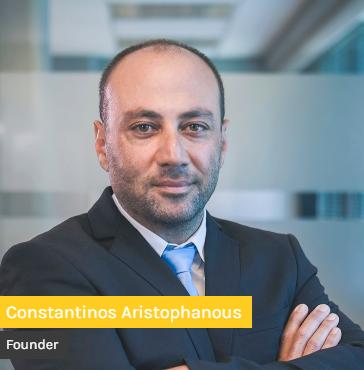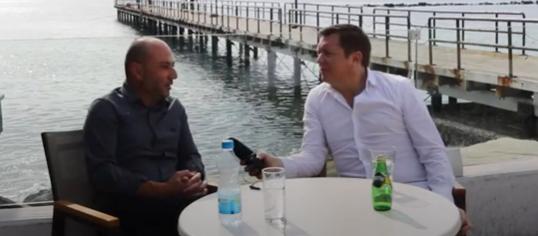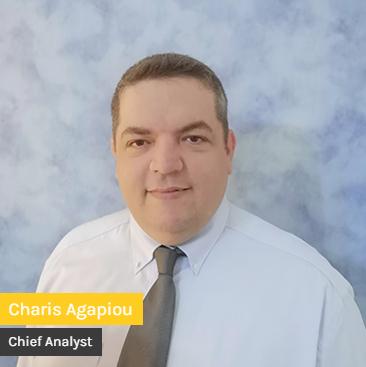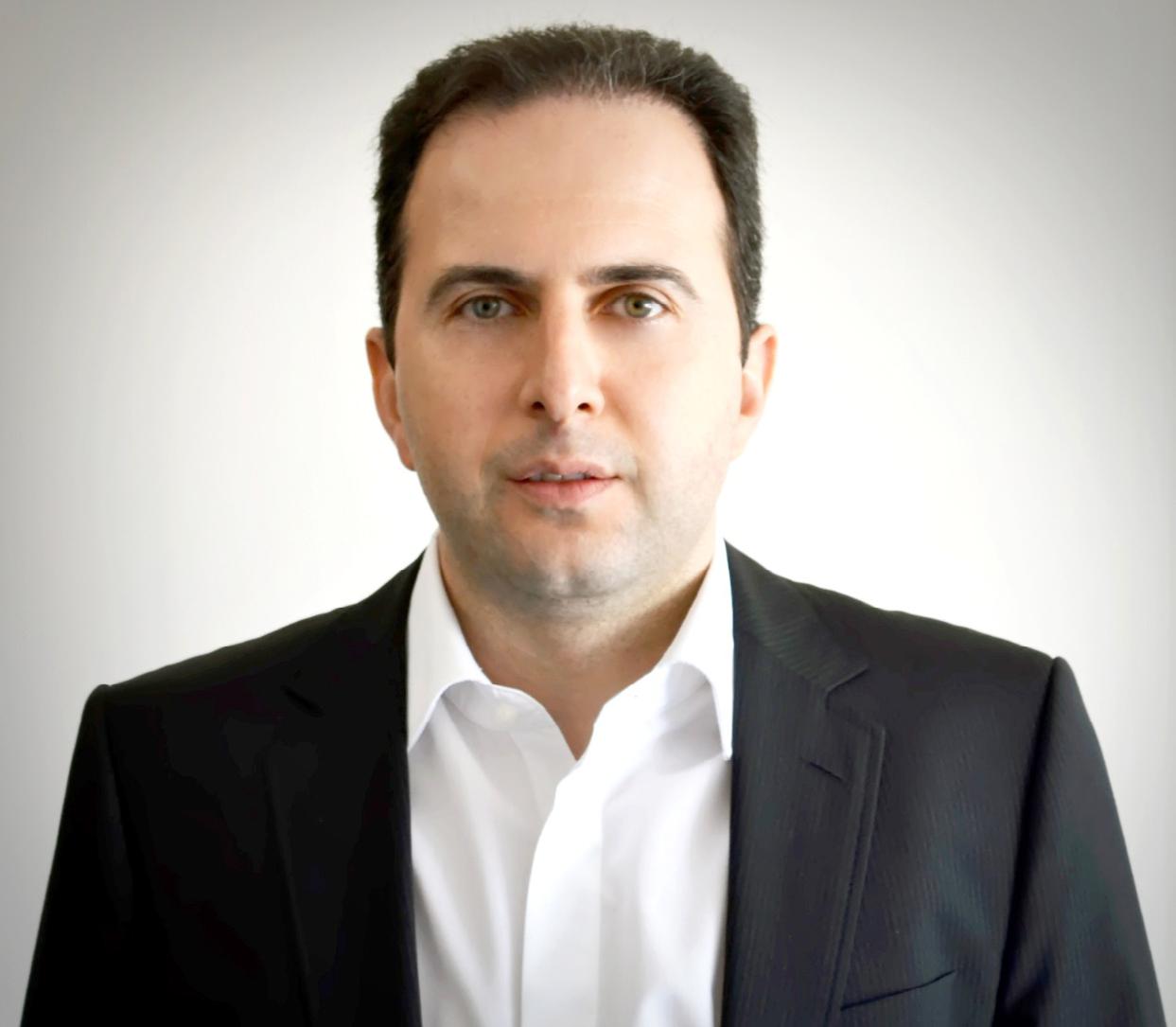
15 minute read
Tiqbee
by PaulGC
CONSTANTINOS AROSTOPHANOUS
Founder of Tiqbee
Advertisement
Q In a personal capacity, I get contacted by many signal providers and if I am being blunt they are not the greatest or are perhaps working in conjunction with the brokerage.What separates Tiqbee from all the others?
To give you a brief background on Tiqbee, we first started off using the services of several brokerages working on behalf of our clients as Portfolio Managers. Regarding our professional background, we studied and received our certified financial planner diploma, which sparked our interest in pursuing further, and gaining more advanced qualifications in technical analysis.
Because of this I believe we developed a track record and credibility, where we could contact brokerages and offer a service that was completely transparent, also we could offer something of use and value to their clients.
It is important to stress that all our performances are audited, which we believe is the key in establishing credibility, but we also believe that this should also be industry standard. When we discussed projects with our future brokerage clients, they could see we were incredibly serious regarding what we had to offer and how we would achieve this. The first brand that we worked in partnership with was Atlantic Securities, which is what you could call a very traditional financial company, compared to what you see compared to a modern FX brokerage. We actively managed portfolios for Atlantic clients for just under 3 years, so it was a decent amount of time to work with such a well established brand, and also we further developed our skills and techniques in this time.
Q If I was to use a signals provider, what should I look for to make sure they are reputable?
Post Atlantic, we sat back and looked at the landscape of the signals industry, and what we saw was a multitude of providers, however they did not seem to have a high level of professionalism. It was very hard to find one with an audited performance or a credible track record, so we made sure that everything was as transparent as possible, outlining the audit and performance on a live verifiable account.
Many providers we found offered evidence of their performance on either a demo account, alternatively they would be selective with the dates showing the performance. In this industry I cannot stress it enough, if you want someone to take you seriously, whether this is an institution or a client, transparency is the key thing to having them work with you.
Everyone who works for Tiqbee, are analysts who have passed professional qualifications to achieve certification from industry respected bodies. Moreover, we have all had roles as portfolio managers in large regulated entities, so we have done this for a living for quite some time.As a result of this, our signals are perfect for both retail and institutional clients alike.
Q Do you have any quality control with which brands you would work with?
On our website we do not refer or promote any brokerage, or white label solution. We only like to work with STP brokers, as we have a very respectable success rate, so it would not be a great for a market maker to use our service. I think more importantly, it is necessary that the brokerage, client and Tiqbee’s interests are aligned in doing the best to make the client money.
With our telegram group and dashboard, they can log in and verify that the statistics and winning ratios match up to scrutiny. You can see all the results, and it is totally transparent.
We also provide you the full screen shot where we show technical support levels of each trade. When you take a look at the massive amount of verified data we have, you can see that we have managed to provide solid returns, with some months returning well above average market returns.
Q Is there a specific type of trader who should or shouldn’t use your service?
As a team of technical analysts, we always use a specific set of rules that do not change. We do provide in some particular instances when the trade goes in our direction, the ability for the trader to move the stop loss to break even. However, we are quite dogmatic with our approach to offering this service not to get carried away with the emotional side with trading which can lead to losses.
To give a brief outline of the rules we adhere to, we look to have a maximum to risk of 1% on each trade. Moreover, we do not like to over trade, which is also a very quick way to damage your account. In our telegram group we offer 3 carefully selected trades a day, so you are not bombarded with meaningless data.
To give you an example of our success rate, in our last month we had around an 85% winning ratio. We set our risk parameters at 1% per trade, so for example if we placed 50 trades where 40 won and 10 lost, with a 1% risk ratio you would have a 30% return, so there is no need for excessive risk, or over trading.
With regards to our leverage policy, we would usually enter a trade at one to a half, not one to one, so based upon this the stop loss can define the position size and the risk involved in each trade.
Q For someone like me, with limited time and experience, how hard is this to do?
We have designed it to make it easy for new entrants to the market, all they have to do is follow the signal that we send. The dashboard has a lot more data, so is a little more complex, but not to the extent where you are overwhelmed. We make sure that everyone is comfortable with what they are looking at, so they have a solid understanding and can use the data and tools to its maximum ability and potential.
For example in the dashboard you have access to the full suite of educational material taught by both the STA and the CFT. Once you get a solid understanding of all of this, we would say this gives you a parallel understanding to the advanced syllabus. Furthermore, you can also find strategies, widgets and many many other ways to assist you in your trading experience.
Q Would you encourage people to take the STA course?
The STA was my way to break into the FX industry, as previously I was working within the banking industry. I wanted to obtain the necessary technical knowledge, so i studied and passed the exam and became certified.
This has become the foundation for my entire career in FX and portfolio management. Based upon this, I would recommend some aspects of this, however at Tiqbee you can utilise our services to take advantage of our many years of studying the various exams to deliver you the trades that a professional would select.

Q Is it hard to actually sell the signal service to a brokerage?
It can be as there are many out there, however once they see the verified results, they can understand that there is a large gulf between what we offer in professionalism, accreditation and transparency compared to our peers.
We have had brokerages who perhaps were looking for quicker wins and different goals, with clients who are over leveraged and perhaps get a little greedy in their trading, so they would not be a great fit for ourselves.
Q Can a brokerage owner / dealing room also follow the signals with their LP also?
It is a very good idea for a dealing desk to trade their own account. We are aware of some brokerage firms doing this, as there does app[ear to be some level of skepticism from the dealing department regarding signal providers.


This is quite reasonable as they must view a plethora of [providers who are not particularly solid, ao it is quite a potential risk both financially and professionally to ask the CEO for money to trade their own account.
However, like anything, once they see the evidence this can change quite quickly. Not only does this give you the net benefit of potentially making an additional revenue from a different source.It can also improve your relationship with your liquidity provider, as you can see a considerable rise in trading volumes
Q What’s the best way to reach you?
Take a look at our website tiqbee.com, you can see the dashboard, the various groups we have, the telegram service etc. If you have any questions, message us there and we can help you out, or go directly to my Linkedin page.
5 Comply
GABRIEL STYLLAS
Founder and CEO of 5 Comply

Choosing the most suitable jurisdiction for your Forex Brokerage Licence: what parameters to consider?
Q During the last 3 years we do notice an increased demand for various type of licenses around the world. In your opinion, what is the reason about that?
The volume and complexity of regulation has been constantly increasing all over the globe during the last few years. At the same time the regulatory environment is continuously evolving and we have experienced many key regulatory changes in the Contracts for Differences (“CFDs”) industry in the last few years. The most credible regulatory authorities across the globe implemented very strict sets of rules and regulations that pushed some brokers to get additional licenses at offshore jurisdictions where they can operate with more flexibility and offer higher leverage, bonuses etc.
The European Securities and Markets Authority’s (“ESMA”) first introduced the temporary ESMA product intervention measures on CFDs with restriction on the marketing, distribution or sale of CFDs to retail investors. This restriction which was initially introduced two (2) years ago imposed: (a) leverage limits on opening positions (e.g., maximum ratio of 30:1 for CFDs on major currency pairs); (b) a margin close-out rule on a per account basis; (c) a negative balance protection on a per account basis; (d) preventing the use of incentives by a CFD provider; and (e) a firm specific risk warning that needs to be disseminated in a standardised way.
Although ESMA’S intervention was originally drafted as being “temporary”, National Competent Authorities (NCAs) about a year and a half ago, published their National Product Intervention Measures in relation to the marketing, distribution and sale of CFDs by issuing relevant local legislation. The measures of NCAs were largely aligned with the ESMA’s temporary product intervention measures. Since the introduction of ESMA’s temporary intervention measures, a big majority of retail clients - that were originally clients of European CFD brokers - have decided to set up accounts with CFD brokers that are established outside the EU in order to be able to circumvent European restrictions. It seems that, traders were looking for offshore brokers and they were willing to accept the additional risks involved.
To answer your question, I believe that, the introduction of EU intervention measures created a very big demand for offshore CFDs brokerage licenses.
Some regulators in offshore jurisdictions like the Financial Services Commission (‘FSC’) in Mauritius and the Financial Services Authority in Seychelles managed to attract many new brokers (mainly EU brokers that would like to offer their clients the option to get higher leverage). These regulators managed to get some knowhow, improve and develop during the last two (2) years, with the aim to attract as many credible brokers as possible by offering higher leverage while, at the same time, their target is to remain credible regulators and further develop their Anti-Money Laundering (“AML”) legislation to be in line with the EU AML framework.
On top of the EU / UK intervention measures, Australia’s watchdog ASIC has recently announced very similar intervention measures effective form 29 March 2021, according to which CFD leverage offered to retail clients will be restricted to a maximum ratio of 30:1 for CFDs referencing an exchange rate for a major currency pair and 20:1 for CFDs referencing an exchange rate for a minor currency pair, gold or a major stock market index.
Gabriel Styllas Founder and CEO of 5 Comply

Q What type of requests does FiveComply receive from CFDs brokers?
We continuously receive a great number of requests that, amongst others, tend to focus on advice regarding the selection of the best jurisdiction to set up a CFDs online brokerage, what might be the best combination of licenses based on the Company’s structure and what is considered as the ideal group structure that will enable a group of companies to target the maximum number of clients in the most compliant and efficient way.
It is really important to emphasise that, based on our expertise, acquiring a license or several licenses might be a crucial decision for each CFD broker, as it will directly affect his business growth and ability to penetrate the market. Due to the complexity of this, there is no single right answer to be provided. There are many alternative choices and combinations that in order to be presented, they need research, several get-to-know meetings with the clients and expertise. The result shall always be a customised solution that will depend on different parameters, factors and a case-by-case basis examination. Thus, our target is to always help our clients find the best possible match, based on their needs and identify the most appropriate set-up for their own case.
Q What are the parameters that a forex brokerage has to consider during the selection process i.e. when choosing the most suitable jurisdiction to get licensed?
Our experienced team is dedicated to offering you extensive guidance and support in comparing regulatory jurisdictions and advising on where and how to best conduct your business by taking into consideration a number of parameters. Among others
the following parameters must always be taken into consideration during the selection process: minimum required capital, the complexity involved in acquiring a license, the estimated time it would take to get licensed, one off expenses to acquire the license, monthly / yearly operating expenses after the company gets licensed, quality of employees in the country, target clients / countries, type(s) of clients to be targeted (retail vs professional), local infrastructure, local banking options, other bank and PSPs that are willing to accept this license.
Brokers with less capital or with different preferences can choose to incorporate their company in an offshore location, which usually has lower initial capital requirements. Incorporating your brokerage in such an offshore location definitely has its benefits in terms of lower expenses, less regulatory requirements and more friendly regulatory environment. However, at the same time being licensed by a non-credible jurisdiction might damage your reputation as a broker, and it becomes more difficult and more expensive when trying to open accounts with banks and PSPs.
On the other hand, brokers with bigger budgets mainly choose to apply for a CySEC / EU license or FCA UK or ASIC Australia license. These countries have regulators that offer better regulatory protection to retail clients and they are considered more credible jurisdictions. At the same time, they have stricter reporting and capital requirements than other offshore jurisdictions.
On the other hand, getting a license from a more reputable jurisdiction gives the regulated entities better access to corporate bank accounts and accounts with PSPs, while also allows these brokers to enjoy better rates and better terms with banks and PSPs.
Finally, getting licensed in the EU e.g., through a CySEC license, makes it easier to attract customers from across the entire Union, with very few exemptions.
Q What would you advise the forex brokers about global licensing? Is there a recipe that always works?
Each region is different and unique, it has its advantages and limitations. The same applies in the case of brokers; each broker has its own characteristics, as well as, different strategy, target markets, risk profile, budget, etc.
So, it is very important for the brokers to choose the jurisdiction or the combination of jurisdictions that will better help them to achieve their targets, at the most cost-efficient and compliant way.
Generally speaking, it always works if you have in the same group an EU (usually a CySEC licensed entity), an offshore licensed entity targeting non-EU clients (with Mauritius and Seychelles being the most popular) and a service company to offer support services to the regulated entities and take advantage of economies of scale. However, this requires a big budget and not all clients can go for this solution; this is the point where we can offer various alternatives.
Q What would you advise existing brokers or start-ups with lower budgets?
In the case of cost sensitive clients, our recommendation is obviously to avoid jurisdictions with high running expenses, while making sure that, they have sufficient capital to cover at least 3-year of running expenses and maintain the minimum capital requirement.
Our professional team provides comparison tables to clients where they can compare the different parameters of the offshore jurisdiction and accurately estimate the one off and ongoing operational expenses. Our team of experts also assists the clients in choosing less expensive jurisdictions and select cost efficient solutions. FiveComply offers outsourcing solutions to certain jurisdictions helping the clients to minimise the number of full-time employees and thus, minimise the expenses.
Q What do you do different at FiveComply?
Our target is to be always one step ahead and act pro-actively, by advising our clients about the best jurisdictions to get licensed from, the best banks to open account with, and the best service providers to cooperate with, while always looking ahead and taking into consideration the upcoming regulatory changes, our clients’ structure and target clientele / countries. We do provide our clients with a license / regulatory road map with the best jurisdictions and we do help them to get licensed and to set up an efficient group structure. We do specialise in group structure set ups and group compliance support in relation to forex companies. Lastly, it is also important to mention that, we are able to offer full support to our clients by helping them be compliant at all times, thus, minimising regulatory and reputational risks, while at the same time, we identify cost efficient compliant solutions to help them grow their business.









